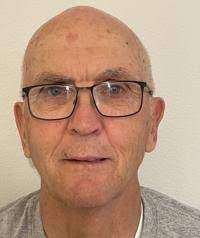It’s the most important stealth election in the Treasure Valley.
Voters in Ada and Canyon counties will choose four College of Western Idaho trustees, filling out a five-member board that presides over the state’s largest community college, with an annual budget exceeding $50 million.
These low-budget and end-of-the-ballot elections could also swing the balance of political power at CWI.
Running as a Republican Party ticket in these nonpartisan races, four challengers are running on some familiar conservative themes. They pledge to cut spending, reduce property taxes and stamp out what two candidates call “agenda-based curricula.”
College of Western Idaho trustees represent five separate zones, but are elected across all of Ada and Canyon counties. Here’s the lineup. Zone 1: Nicole Bradshaw, Alisha Hickman. Zone 2: Molly Lenty (incumbent); Gordon Simpson; Ryan Spoon. Zone 3: Jim Reames (incumbent); Jan Zarr. Zone 4: Thad Butterworth; Annie Hightower (incumbent). Zone 5 trustee Cherie Buckner-Webb, elected in 2020, is in the middle of her four-year term.
Three incumbents and a newcomer are running as a status-quo slate — with a sharply different set of priorities. They say they want to keep CWI classes affordable, build on partnerships with industries in a growing valley, and develop the college’s vacant property on the fringe of Downtown Boise.
These four candidates are also sounding an alarm, saying the Nov. 8 elections could throw CWI into turmoil. They’re not bashful about raising the specter of North Idaho College — where a cadre of GOP-backed trustees fired the college president, and where board dysfunction has triggered an exodus of senior staff and jeopardized the school’s accreditation.
This stealth election, they say, could prove to be a chaotic sequel to NIC’s 2020 elections.
The GOP-aligned challengers
On the state GOP’s online voter guide, Republican-aligned challengers Alisha Hickman, Ryan Spoon, Jan Allan Zarr and Thad Butterworth raise a list of issues, with considerable overlap.
Alisha Hickman and Thad Butterworth did not respond to repeated interview requests. Ryan Spoon and Jan Allan Zarr agreed to interviews, but demanded in advance that their comments would be published in full. Idaho Education News did not agree to this condition, and the other five candidates made no similar demands prior to their interviews. Excerpts from these interviews appear in this article.

Salaries. Without providing specifics, several of the candidates complain of bloated administrative salaries at CWI. Zarr says CWI needs to cut high salaries and wasteful spending and focus on preparing students for real life and good-paying jobs. And at least at the top, CWI does pay well. At $315,000 a year, President Gordon Jones makes considerably more than his counterparts at NIC, the College of Southern Idaho and the College of Eastern Idaho, and makes more than the president of one of Idaho’s four-year schools: Lewis-Clark State College President Cynthia Pemberton.

Career-ready education. A common theme in their responses, the challengers say CWI needs to emphasize alternatives to a four-year degree, such as career-ready degrees. They offer no specifics.
Another spending priority? While calling on CWI to cut “needless spending,” Hickman says she’d like the money to move into educational services or perhaps intercollegiate sports. Only two of Idaho’s four community colleges field sports teams: NIC and CSI.
Taxes. All four candidates point out that trustees can raise — or cut — CWI’s property taxes. But they don’t point out that CWI’s property tax levy rate is historically the lowest of the state’s community colleges: In 2020, the rate came to $10.63 per $100,000 of taxable value (CSI collected the highest levy, at $99.15 per $100,000 of taxable value.) Property taxes account for about one-fifth of CWI’s budget. Most of the rest comes from student tuition and fees and state tax collections.

Boise Pride. In the GOP questionnaire and on social media, Hickman and Spoon criticize CWI’s support of September’s Boise Pride event. “This is a completely unacceptable activity for a (government) agency using your property tax money,” Spoon wrote. CWI says a student organization, the Queers and Allies club, attended the event. “The club sponsorship of the event was funded through a private donation, and no taxpayer funds were used for this event, including employee time and compensation,” CWI said in a statement.
Butterworth is making his second run for office this year; he ran for a state Senate seat in May, losing in the GOP primary to Meridian City Council member Treg Bernt. Spoon had filed this spring to challenge Senate President Pro Tem Chuck Winder, R-Boise, but later withdrew from the race.

A member of Lt. Gov. Janice McGeachin’s hand-selected anti-indoctrination education task force in 2021, Spoon might be the most outspoken of the challengers. In one Facebook post, decrying health protocols, he labels COVID-19 a “#Scamdemic.” His campaign website lists four goals for CWI; one goal, he said, is to “train students for success in their careers, not rioting in the streets.”
The incumbent-heavy slate
Narrowly elected to the CWI board in 2018, Molly Lenty says she is running again in hopes of building on the college’s partnerships with industries such as Micron and Amazon, while continuing to build the college’s physical presence. “We have accomplished phenomenal things over these past four years.”

Her running mates speak of CWI in similar, glowing tones. Jim Reames, appointed to the board in May 2021, says he is inspired by Jones, a former Harvard University and Boise State administrator who started as president in January. Annie Hightower, elected in 2018, touts CWI’s full-service offerings: GEDs, career-technical certificates and associate’s degrees that prepare graduates for four-year school. Nicole Bradshaw, the newcomer on the slate, says CWI has found a niche that serves 30,000 students and complements the state’s four-year schools.
Still, all four acknowledge that CWI faces challenges:
Expansion. Trustees this spring approved a “visioning” plan for CWI’s Nampa campus and its Downtown Boise property. The long-term hope, these candidates say, is to create a more centralized, more accessible college. And that could save money down the road, Hightower said, since CWI would no longer have to lease classroom space in scattered locations.

The big question is how CWI will pay for expansion. Voters have rejected separate requests for a bond issue and a plant facilities levy, and CWI doesn’t seem eager to try a third time. A mixed-use plan for the Downtown campus could offset some costs, Lenty said.
Affordability, and taxes. Bradshaw says “innovative thinking” has enabled CWI and its trustees to hold down property taxes while holding the line on tuition. For the past seven years, CWI has frozen tuition at $139 per credit hour.
So Bradshaw is skeptical about the calls to reduce the property tax levy, saying this would force CWI to raise tuition or reduce student scholarships. Reames — a banking executive who describes himself as a “numbers nerd” — also isn’t sold on the push for property tax reductions. “If you look over the last nine years, we’ve been part of the solution.”

Retention. Last fall, only 57% of full-time CWI students returned for their second year. Hightower says the college needs to figure out why students are leaving — and what factors are within its control. “I think we need to do some work.”
To a person, the four candidates see the trustees’ role as somewhat limited: making sure the college’s finances and accreditation are in order, and work with the administration. Part of the role, Bradshaw said, is to serve as ambassadors for the college.
This attempt to carve out a limited job description might not be a direct reference to this slate’s conservative challengers. But it’s unmistakably a reference to NIC, where trustees have been criticized for trying to inject themselves into day-to-day operations.
A crucial but oddball election

Like her running mates, Bradshaw says she knows little about her opponent. But as she runs for public office for the first time, she doesn’t mince words about why she’s in this race. She says she wants CWI to remain relevant.
“There’s definitely a strong movement to disrupt … and create some chaos.”
Gordon Simpson shares Bradshaw’s concerns.
Simpson is a lone-wolf wild card in the Zone 2 race, running alongside Lenty and Spoon. But in an interview, Simpson went out of his way to praise CWI’s workforce development programs. He described CWI as a “blue-collar school” that shouldn’t be drawn into the uproar over hot-button phrases such as critical race theory. And he said he has no criticism of Lenty — and said he is running because he doesn’t want CWI to get mired in the same dysfunction now plaguing NIC.
“I’m saddened by what’s been happened up there,” he said. “They’ve been kidnapped.”

By any normal measure, the CWI elections are an oddball.
Candidates run across the state’s two most populous counties — with more than 755,000 residents, according to recent U.S. Census Bureau estimates. The community college district could easily pass for a congressional district.
These tend to be bargain-basement elections, and that trend is holding at least so far. As of Thursday, only two of the nine candidates reported any fundraising activity. Hightower has raised $1,300, with $1,000 coming from state Sen. Melissa Wintrow, D-Boise. Spoon has raised $800.
Meanwhile, many voters simply don’t bother with college trustee races. In November 2020, more than 350,000 Ada and Canyon county residents voted in the presidential race. Three trustee races were on the ballot that day, with vote tallies ranging from about 233,000 to 254,000.
“It takes a small number of folks voting to sway the vote,” said Hightower, who ran unopposed in 2018.
And on Nov. 8, a relatively small pool of voters will choose to stay the course, or change the direction, at Idaho’s largest two-year school.
Kevin Richert writes a weekly analysis on education policy and education politics. Look for his stories each Thursday.
More reading: More about the CWI elections from Betsy Russell of the Idaho Press.
